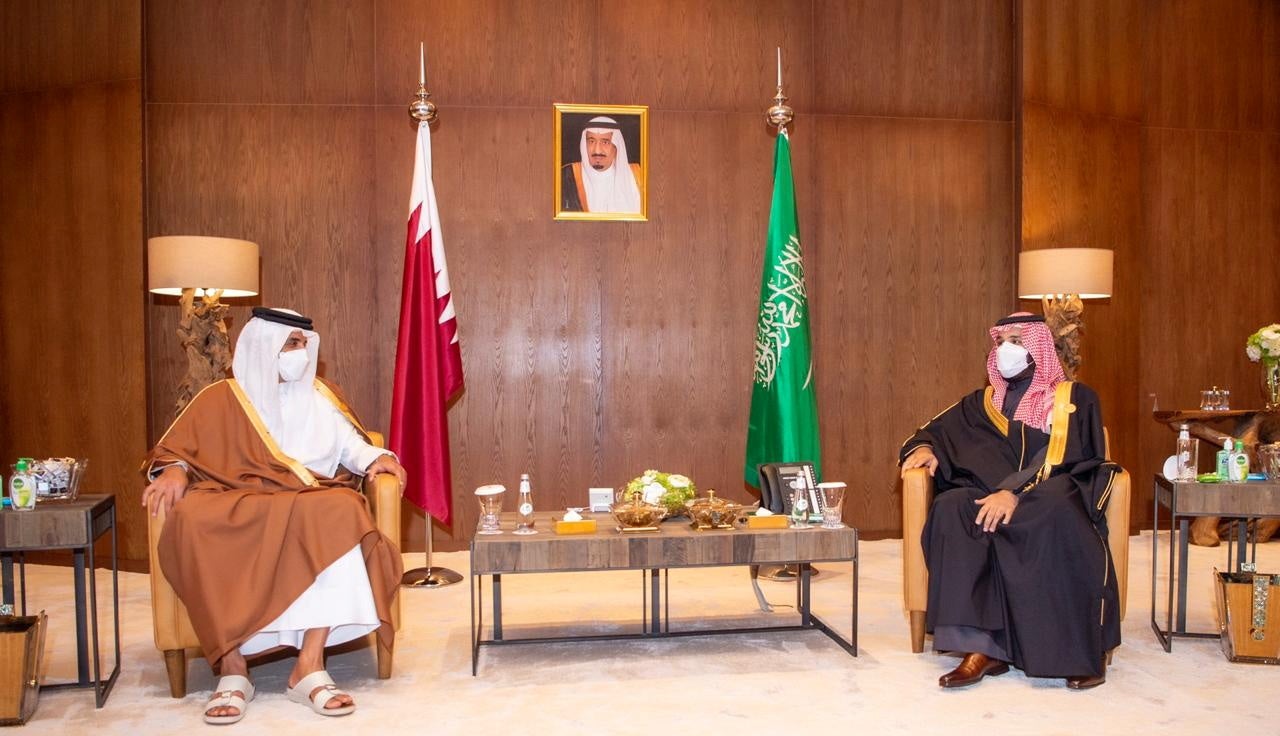A political truce in the Gulf will not mask the animosity between residents of Qatar and the UAE
Once the dispute calmed down and concern of an invasion of Qatar abated, it morphed into a conflict largely played out on social media – and this isn’t likely to end any time soon, writes David Harding


The Qatar blockade is now over – or at least there is a fragile truce at the political level.
The "stability and solidarity" agreement signed by Gulf leaders on Tuesday should bring an end to more than three years – or 1,300 days – of squabbling between some of the world's richest countries.
It was an opaque, sometimes forgotten dispute, with moments of drama and high comedy, which saw the 2022 football World Cup host nation isolated by its bigger and more powerful neighbours, and subject to an air, land and sea blockade.
But although there may be a resolution at the political level – though the opportunity for further hostilities cannot be ruled out – it could take a little longer for things to mend on a personal level, especially when it comes to Qatar and the United Arab Emirates.
The dispute also notably involved Saudi Arabia, Bahrain and Egypt, but it seems the sharpest animosity was between residents of Doha and Dubai and Abu Dhabi, something which could endure for some time yet.
Once the dispute calmed down from its earliest days and genuine concern of an invasion of Qatar abated, it morphed into a strange conflict largely played out in the toxic world of social media. It was there that the barbs became decidedly venomous.
Talk to a Qatari during the dispute and their most furious anger was largely directed at Emiratis, not Saudis. UAE attacks were seen as being deeply personal, many aimed at the Qatari ruling family, with lewd and photoshopped images posted online of female royals, crossing a line of betrayal. One Qatari told me they would never visit Dubai again – an almost weekly thing to do before the blockade – not even to shop, which in the Land of the Malls, is a pretty high stand to take.
The rancour manifested itself most noticeably during the 2019 football Asian Cup. Hosted by the Emirates, Qatar won the tournament, beat Saudi Arabia and in the semi-finals thrashed UAE 4-0, prompting huge celebrations in Doha, talk of revenge being served and much waving of four fingers. One Qatari said they enjoyed that result more than the 3-1 defeat of Japan in the final.
It could take some time before there is any "stability and solidarity" among those who are mere mortals, not ruling dynasties.
Last night, as news of the dispute ending many in the Gulf reacted in the most obvious way – via social media. One person in Doha wrote: "I missed you" next to the Saudi and Bahraini flags. Next to the UAE flag they said bluntly: "Not you, you can f*** off."
Yours,
David Harding
Foreign editor



Join our commenting forum
Join thought-provoking conversations, follow other Independent readers and see their replies
Comments